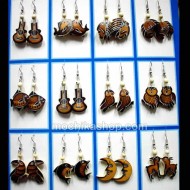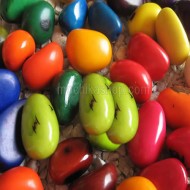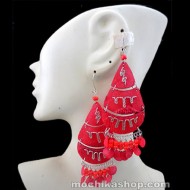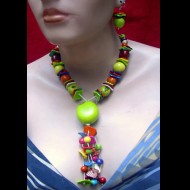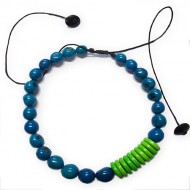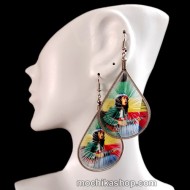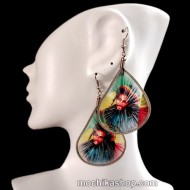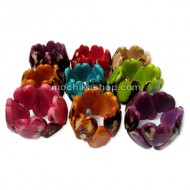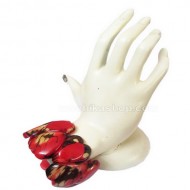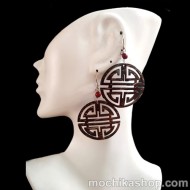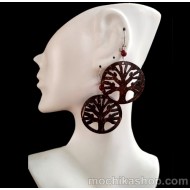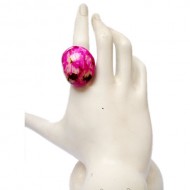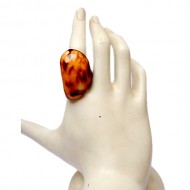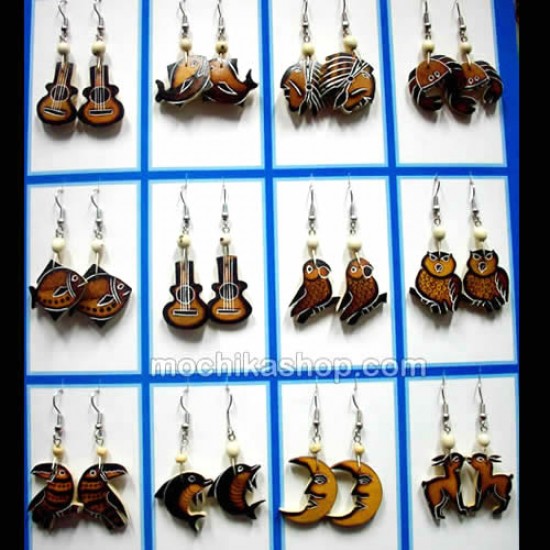
Lot 24 Pretty Peruvian Carved Gourd Earrings Mixed Images
- Stock: In Stock
- Model: 24AMATBFG
- Weight: 200.00g
- Location: PERU
190 samples sold
Product Views: 626
$32.40
Beautiful Handmade Carved Engraved Small Peruvian Gourd Earrings Assorted Images from the Andes of Peru, - Organic Eco Jewelry, Set x 24 Units : Pretty Handmade Earrings , natural and organic material designed and handcrafted by skilled artisans in Peru .
About Peruvian Gourd: Before ceramics, gourds served as bowls for eating, drinking and food storage; baskets for carrying small items like nuts and berries; musical instruments such as rattles, maracas and guiros; owls and other birds and animals; masks and decorative plaques; even mobiles. All of these forms continue to be produced today and others such as bird houses, Christmas tree ornaments, vases, purses, barrettes and keychains have been introduced.
Different kinds of gourds have been used in Peru but the most common one is called mate. It is grown on the northern coast of Peru, around Trujillo, and from there sent to production centers. A major production center is Cochas Chico, a town near Huancayo, in the Andes east of Lima, the Peruvian capital. Engraved gourds have been made in Cochas Chico for hundreds of years. The majority of those sold in Lima today are produced there, although some are made in Lima itself, by immigrants from Cochas Chico. Teofila Canchumuri Sinche is one of these.
The gourds are engraved--properly speaking, they are not etched, as no acid is used, nor are most of them carved, since their shape remains unchanged--using a wooden-handled chisel-shaped instrument called a buril. Sometimes the design is traced in pencil on the gourd before the engraving but more practiced artists engrave the design directly. Burils with blades of different thicknesses are used to vary the effect. Sections of the gourd flesh may also be scooped out, throwing certain figures into relief. After the engraving other tools are used to burn the gourd. By varying tools and pressure, the artist can produce colors ranging from burnt orange through brown to black.
About Peruvian Gourd: Before ceramics, gourds served as bowls for eating, drinking and food storage; baskets for carrying small items like nuts and berries; musical instruments such as rattles, maracas and guiros; owls and other birds and animals; masks and decorative plaques; even mobiles. All of these forms continue to be produced today and others such as bird houses, Christmas tree ornaments, vases, purses, barrettes and keychains have been introduced.
Different kinds of gourds have been used in Peru but the most common one is called mate. It is grown on the northern coast of Peru, around Trujillo, and from there sent to production centers. A major production center is Cochas Chico, a town near Huancayo, in the Andes east of Lima, the Peruvian capital. Engraved gourds have been made in Cochas Chico for hundreds of years. The majority of those sold in Lima today are produced there, although some are made in Lima itself, by immigrants from Cochas Chico. Teofila Canchumuri Sinche is one of these.
The gourds are engraved--properly speaking, they are not etched, as no acid is used, nor are most of them carved, since their shape remains unchanged--using a wooden-handled chisel-shaped instrument called a buril. Sometimes the design is traced in pencil on the gourd before the engraving but more practiced artists engrave the design directly. Burils with blades of different thicknesses are used to vary the effect. Sections of the gourd flesh may also be scooped out, throwing certain figures into relief. After the engraving other tools are used to burn the gourd. By varying tools and pressure, the artist can produce colors ranging from burnt orange through brown to black.
------------------------------------------------------------------------------------------------------
Price x Unit : $ 1.35
Amount:1 Set of 24 Earrings
Weight: 200 gr.



















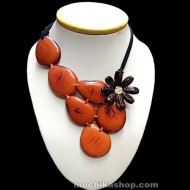
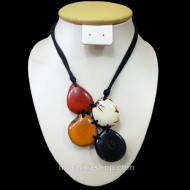
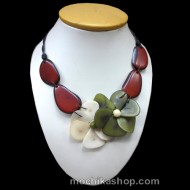
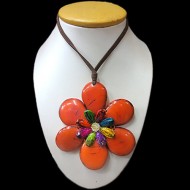
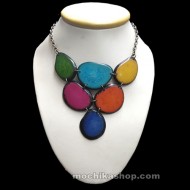
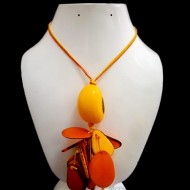
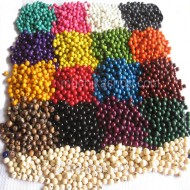
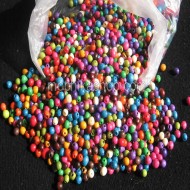
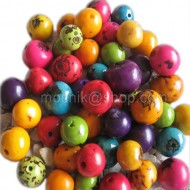
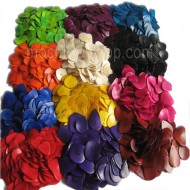
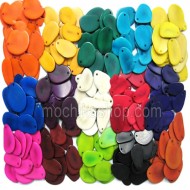
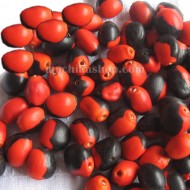
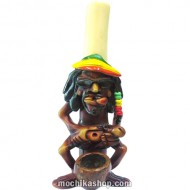
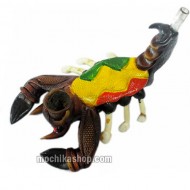
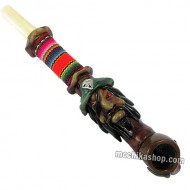
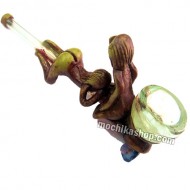
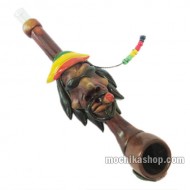
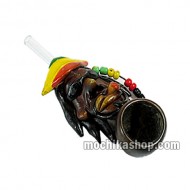
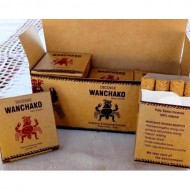
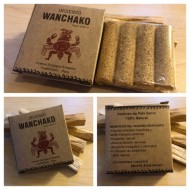
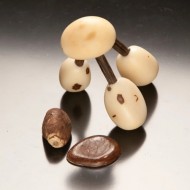
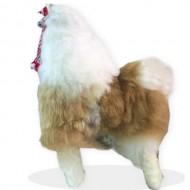
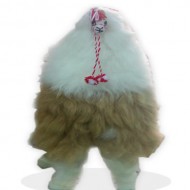
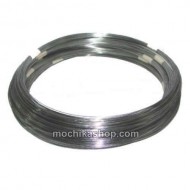
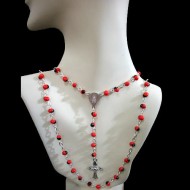
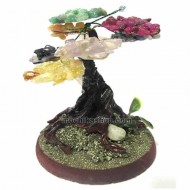
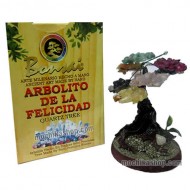
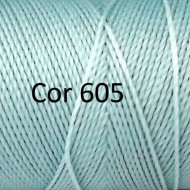
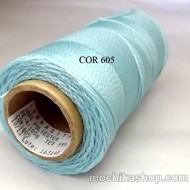
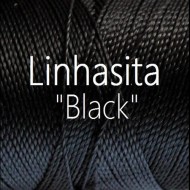
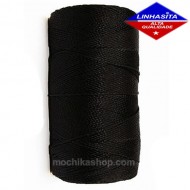
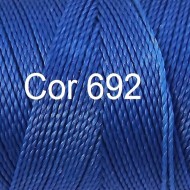
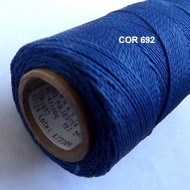
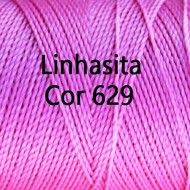
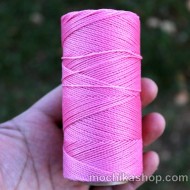
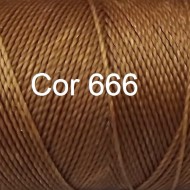
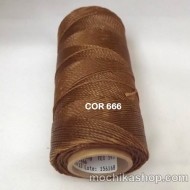
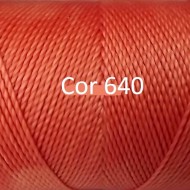
-190x190.jpg)
